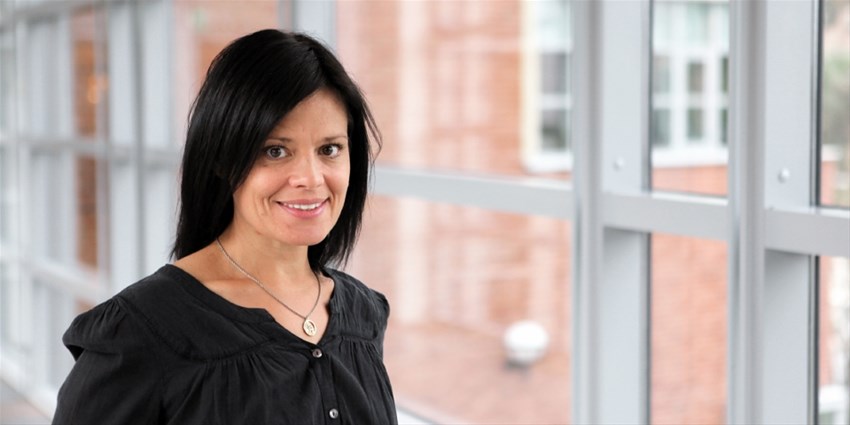New research on doctors' everyday use of new technology
01 Mar 2021
Increased knowledge and new digital support for the dissemination of knowledge places higher demands on doctors to stay up to date, at the same time as it is more difficult to get an overview. In parallel, today's patients are often more well-read and informed, seek other paths to knowledge than through care and generate their own, personal health data. How should doctors navigate this?

Helena Vallo Hult is an externally employed doctoral student in informatics with specialisation in work-integrated learning at University West and also employed at NU Hospital Group as a development manager. Last Friday, she presented her dissertation where she studied just this.
Tell us about your research!
My research deals with digitalization in healthcare, but not primarily focused on the actual care system (e.g., digital journaling). Instead, I have explored how we can understand the daily use of digital technologies and new digital work methods, such as information retrieval, collaboration and informal learning. In my dissertation, I have specifically studied how doctors experience challenges and opportunities with digital technologies for work and learning, and how they see their role and expertise in relation to informed and digitally active patients.
Why have you chosen this area?
Earlier research largely focused on technical aspects and studied specific systems. In recent years, the focus has shifted from use and development of IT to the meaning of digitalization in a broader sense, in terms of how we change our way of living and working. Increasing amounts of data and new digital support for knowledge sharing place higher demands on doctors, as with other specialist professions, to stay up-to-date while also making it more difficult to gain an overview. At the same time, today’s patients are often more well-read and informed, they look for other sources of information than merely the health care system, and they generate their own personal health data. In many ways, this is positive and enables learning and development, but it also entails new challenges to questions about division of responsibility, privacy and reliability of digital information sources. I am interested in understanding how patients and staff directly and indirectly are influenced by digitalization and how we can relate to technology to utilise it in the best possible way.
How have you conducted your research?
I have conducted interviews, arranged focus groups and had a survey with Swedish resident physicians. The dissertation takes a social technology perspective, where information systems are broadly defined to include information, technology, content and the use of digital technologies in a social context. Theories from informatics, information science and learning are used to analyse tensions and contradictions that arise in digital work.
What are your most important findings?
Briefly, the findings of my research mirror the ongoing changes in health and medical care and the complexity in today’s information infrastructures where platforms, systems and applications are used interchangeably in working life and private life. The dissertation contributes knowledge and understanding about how doctors navigate and manage tensions and contradictions that occur in this context and how they balance the information that patients bring with their own expertise. The dissertation points to the need for new competencies to meet changing conditions for professional work and learning and concludes with three recommendations that, among other things, deal with leveraging patients as co-creators in care while the framework for the doctor’s role and areas of responsibility is maintained, and seeing learning as a dimension of digitalization beyond teaching specific functions of the systems already being used.
How do you want to contribute to future development?
I hope that my research findings and insights into how doctors use digital technologies in their daily work, which I describe in my dissertation, will be used in ongoing digitalization efforts in healthcare and will contribute to a constructive critical discussion on the future of digital work. Not least against the background of the fast transition that many organisations have now had to make during COVID-19, where people around the world are now taking part in new forms of digital work.
What does the future hold; what happens now?
I will continue working as a development manager with the NU Hospital Group in a combined position that includes both research and development work. In the near term, I will be working with a project developing digital forms for learning, with a focus on professional development for the care professions, linked to a coordinating assignment for training, development and research. It would be interesting to follow developments after the pandemic and what we can learn from this experience so that we can continue developing digital forms of work and the need of physical meetings for informal and formal learning and exchange of knowledge.
To the dissertation: Digital Work: Coping with Contradictions in Changing Healthcare
Contact: Helena Vallo Hult, helena.vallo-hult@hv.se, +46104356942


